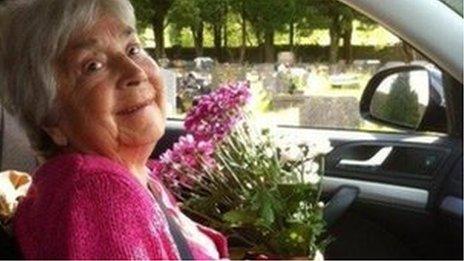Reaction to spot checks on care for older people in Wales' hospitals
- Published
Investigators carried out spot checks at 20 hospitals prompted by criticisms of elderly patient care
Improvements are needed to make sure medicines are safely administered on wards caring for elderly patients, said the health minister for Wales.
Mark Drakeford had commissioned independent spot checks of 70 wards in 20 hospitals across Wales.
The report, external found that "in the vast majority of wards inspected" medicines management needed to be improved.
But there were no systemic issues of concern about patient hydration, continence and use of sedation.
Following the publication of the report, which had been ordered following the publicity surrounding the case of Lilian Williams, 82, who died in hospital during her third stay, Mr Drakeford said: "The care provided is safe and compassionate.
"I am pleased to say these spot checks have shown this is overwhelmingly the case," he said.
"The spot check teams found there were no widespread issues of concern about patient hydration, continence needs or the use of sedation and they praise the good examples of care they witnessed.
"However, there were some individual areas were improvements are needed, specifically around medicines management."
The independent team carrying out the checks on wards found numerous examples of good and notable practice which they say outweighed a few, isolated examples where shortcomings in patient care were identified.

The Welsh NHS Confederation welcomed the report saying it highlighted the "good practice" being carried out in hospitals.
In a statement, it said: "The Welsh NHS Confederation, and all health boards and trusts in Wales, are committed to improving care and making sure that every patient is treated with dignity and professionalism.
"We fully supported the minister's demand for assurance through a range of actions, including the programme of unannounced spot checks, that failings were not happening elsewhere in Wales.
"When the quality of care falls far short of that expected, it is important to ask questions and make sure lessons are learned.
"Much work continues to go on in NHS Wales to make sure that all patients receive the high standards of care that they deserve and expect.
"We are pleased to hear that the spot checks have found examples of good practice, and that where issues for improvement have been identified, action has been taken.
"However, we realise we cannot be complacent.
"We will continue to build on this work to make sure every patient in NHS Wales receives compassionate, respectful and dignified care."

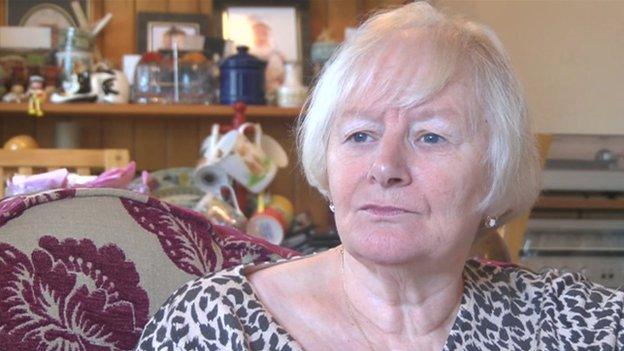
Pam Davies is angry over the way her mother was treated in hospital
Case study: Dorothy Mead, 82
Pam Davies's mother Dorothy Mead, 82, was admitted to the Princess of Wales Hospital in Bridgend in 2010 with low potassium levels.
She died five days later. The family claim she received appalling care and an ombudsman's report found in their favour.
Abertawe Bro Morgannwg University Health Board has since apologised to the family.
One of the big issues was medication.
Mrs Davies said: "She didn't have a bell push to start with so she couldn't call for help. And there was a lack of drugs being administered properly.
"We went in on several occasions and found pills in the bed, on the bed, under the bed.
"So they weren't sure whether they were my mother's or the lady's in the next bed.
"I feel very frustrated because we keep having report after report and nothing changes.
"I'm appalled that four years later - four years after my mother's death we still hear reports that nurses still need to have more training, and things are not right. Four years down the line?
"If she had been treated in a timely manner she would have been alive - she would have come out of that hospital 24 hours later.
"It seems to me that they're playing God in the hospital - and if you're a certain age then they're not trying very hard."
Mrs Davies spent 20 years working for the ambulance service and is now a local councillor for Labour in Bridgend.

Chief medical officer Dr Ruth Hussey said there were "lovely examples of good practice" while areas of concern were being acted upon.
Chief Medical Officer Dr Ruth Hussey said the report had been a "unique opportunity to see what was going on on a day-to-day basis", but said there were examples of care "not being good enough".
She said issues had been raised with with staff on the ground.
"The general points that came out for me was the quality of leadership at ward level was really important," she said.
"The documentation that we're asking staff to complete is also an area that the chief nursing officer and myself are looking at.
"Can we make it easier for people to do the day-to-day job? They want to be able to care for patients and if there are things we can do to make it easier we will look at it.
"We need to make sure that 100% of the time everyone gets the right care."

Prof Jean White, chief nursing officer, said Bridgend and Neath hospitals were still 'on a journey of improvement'
Prof Jean White, Wales' Chief Nursing Officer, said the report was a reminder to staff to get the basic things right all the time
She said: "It's given us a snapshot of Wales as it was in the summer.
"I have assurance things to do with hydration, continence and making sure that people weren't over-sedated were done well in the majority of places.
"There's also some excellent practice out there as well."
She said some of the "work-arounds" by nurses in terms of medicine management when drug cabinets were too small weren't the right answer, so this was now being looked at to comply with standards.

- Published16 October 2014
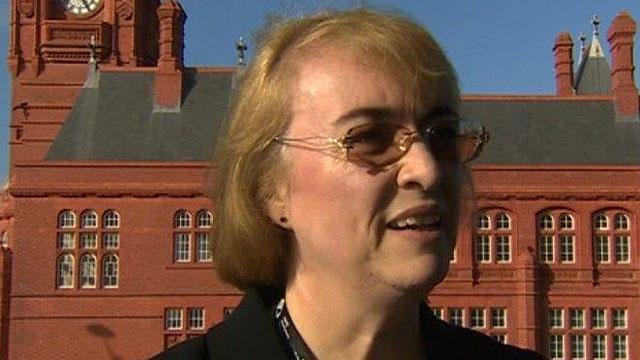
- Published16 October 2014
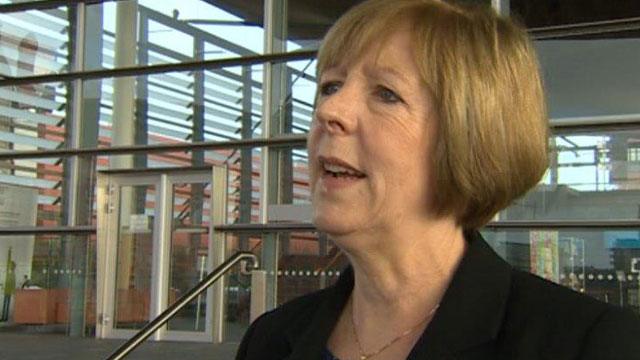
- Published16 October 2014

- Published16 October 2014
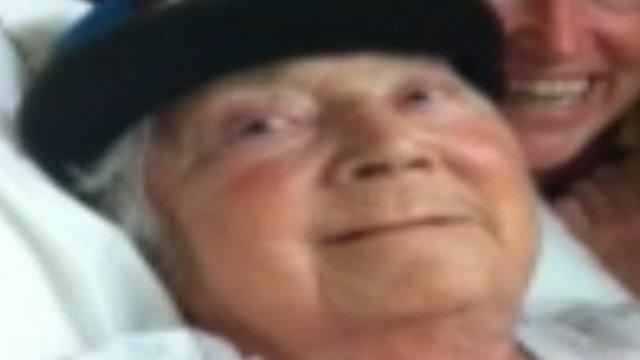
- Published25 July 2013

- Published16 October 2014
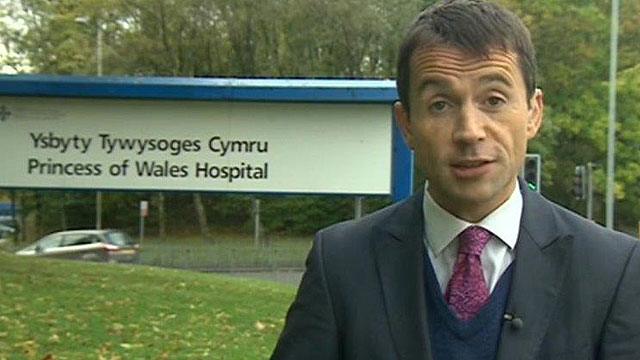
- Published13 May 2014
